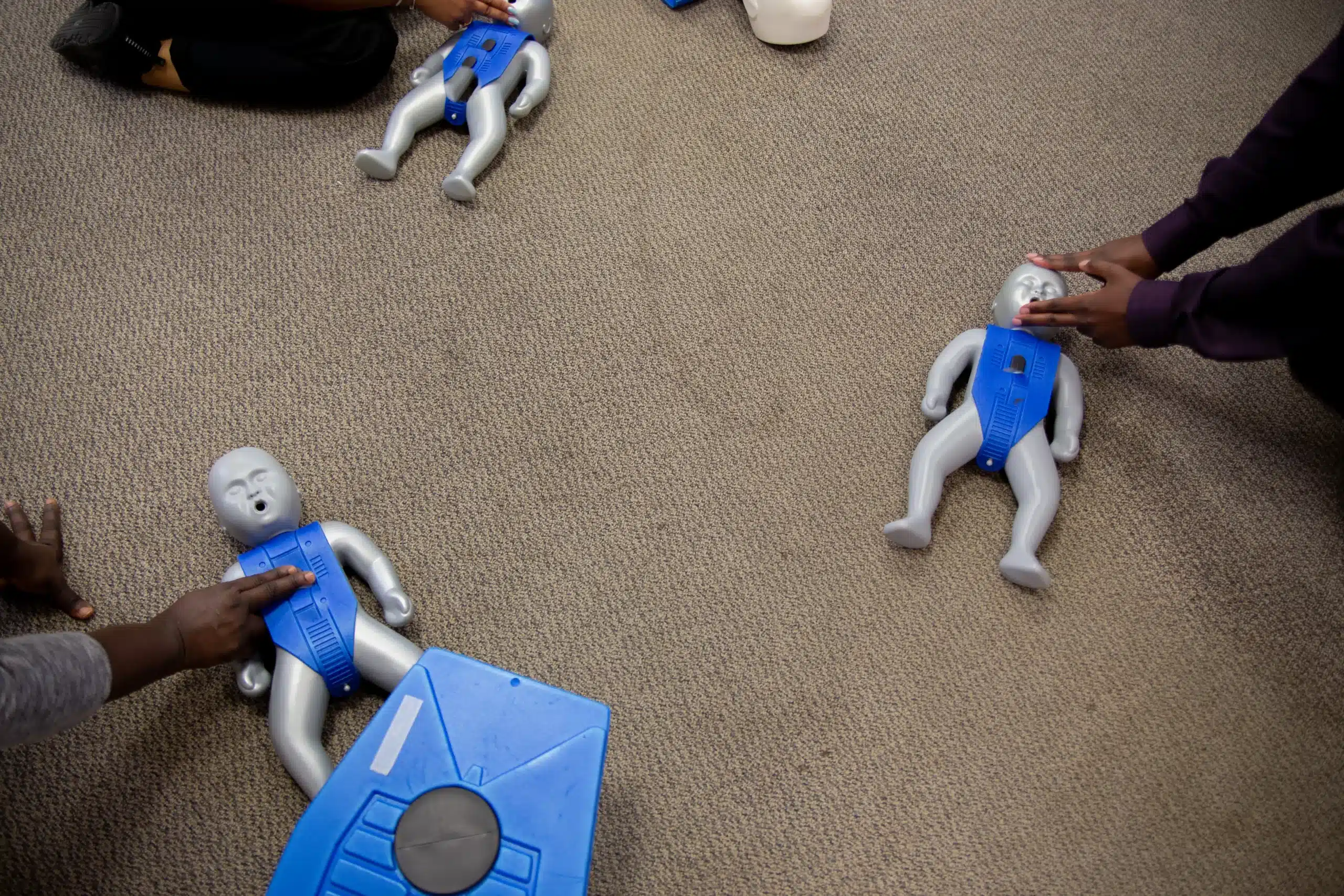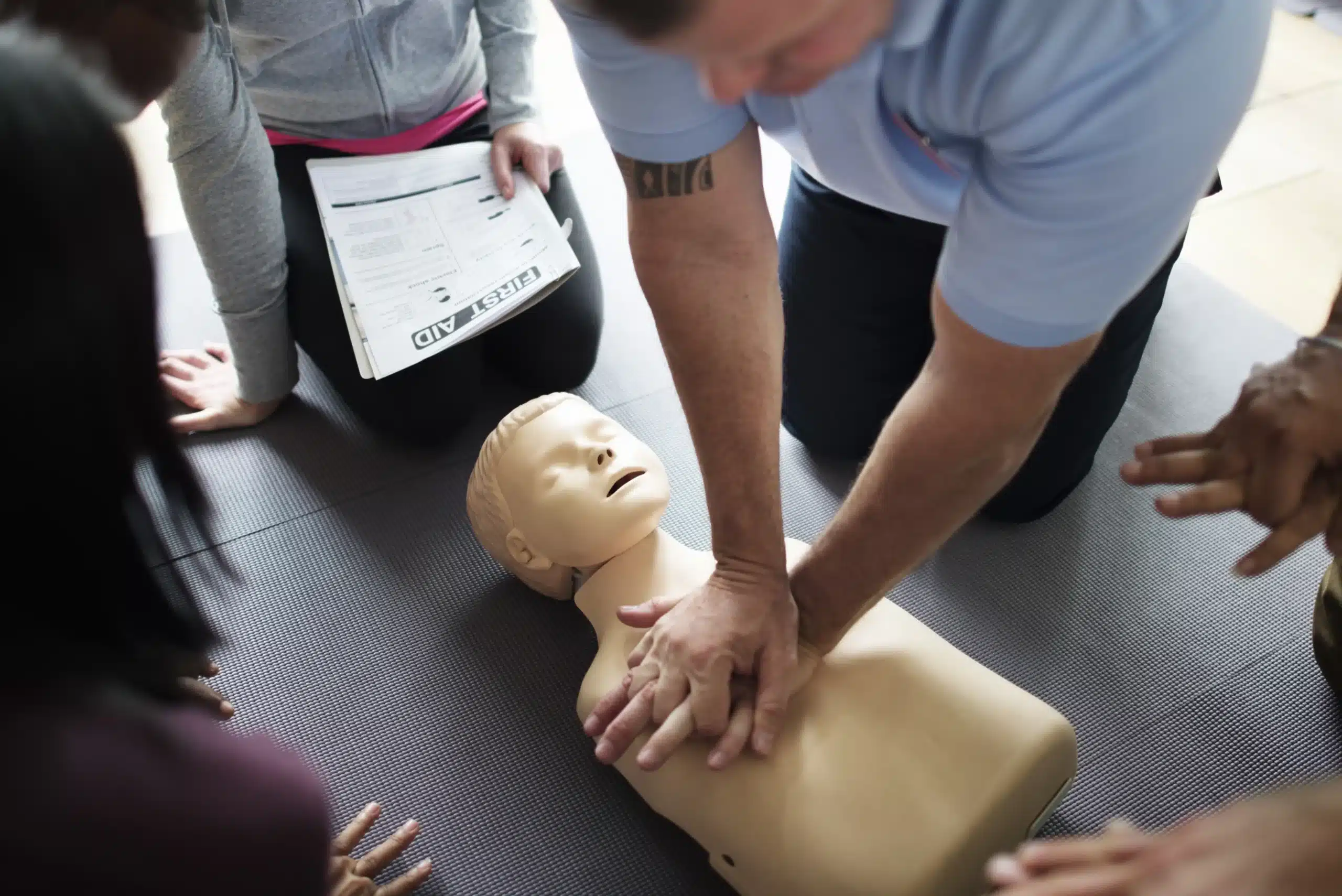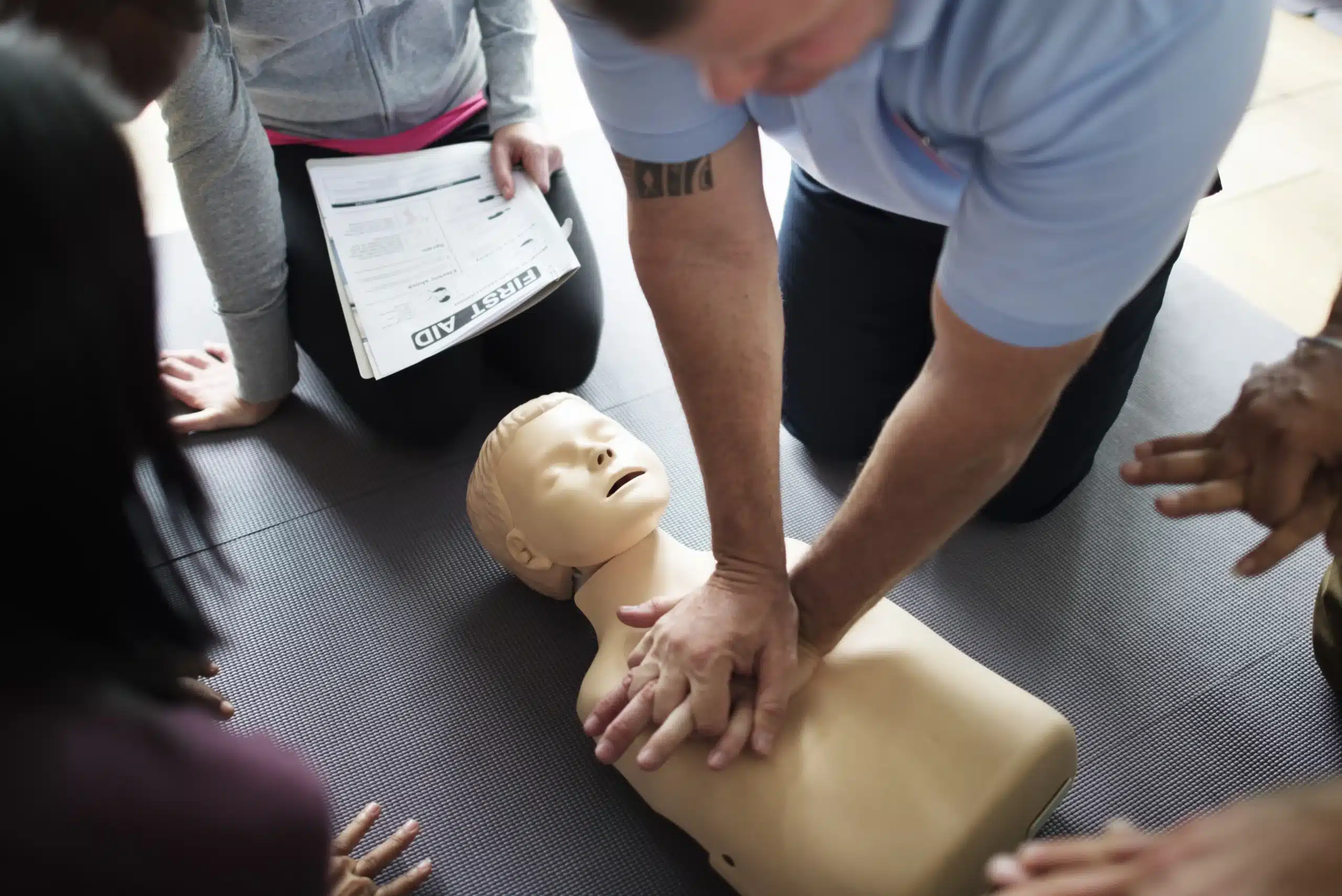Working in healthcare, especially in a vibrant city like Palo Alto, demands staying at the top of your game. For professionals entrusted with the well-being of infants and children, Pediatric Advanced Life Support (PALS) certification is more than just a credential—it’s a lifeline. PALS HeartCode in Palo Alto offers a blended learning approach that combines online convenience with hands-on practice, making it easier than ever to acquire these essential skills. This flexible format allows you to learn at your own pace and then demonstrate your proficiency in a real-world setting. Whether you’re a seasoned healthcare provider or just starting your career, this article will guide you through everything you need to know about PALS HeartCode training in Palo Alto. We’ll cover the course content, key skills, certification process, and how to choose the right training provider for your needs.
Key Takeaways
- PALS HeartCode blends online learning with hands-on skills: This flexible approach lets you learn at your own pace and then apply your knowledge in a practical setting.
- PALS certification is crucial for Palo Alto healthcare professionals: It equips you with essential skills to manage pediatric emergencies and demonstrates your commitment to providing excellent care.
- Finding the right training provider simplifies the process: Consider factors like cost, schedule, and instructor experience to ensure a positive and effective learning experience.
What is PALS HeartCode and Why Does it Matter?
PALS HeartCode is a blended learning program from the American Heart Association (AHA) combining online coursework with in-person skills practice. It’s designed to equip healthcare providers with the knowledge and techniques needed to respond to pediatric emergencies. This approach allows you to learn at your own speed and then demonstrate your skills in a real-world setting. If you’re a healthcare provider in Palo Alto, understanding PALS HeartCode and its benefits is essential for advancing your career and providing excellent care.
PALS HeartCode Course Content
The PALS HeartCode program covers a wide range of topics crucial for pediatric emergency care. You’ll learn to recognize and manage life-threatening conditions like respiratory distress, shock, and cardiac arrest in infants and children. The course emphasizes a team-based approach, teaching effective communication and coordination during critical situations. The online portion uses interactive simulations and case studies to reinforce learning, while the hands-on session focuses on practical skill development and assessment. This blended learning style offers flexibility for busy professionals. Redwood City CPR Classes offers group discounts for PALS HeartCode training.
Key Skills and Techniques
PALS HeartCode training emphasizes high-quality individual skills and high-performance team dynamics. You’ll gain proficiency in essential techniques such as airway management, vascular access, and medication administration specifically tailored to pediatric patients. The course also covers effective team communication strategies, helping you coordinate care seamlessly during emergencies. These skills are vital for any healthcare provider working with children, ensuring they can provide prompt and effective interventions when seconds count. For more information, review the PALS Course options from the AHA.
Importance for Palo Alto Healthcare Providers
For healthcare providers in Palo Alto, PALS certification is often a requirement for employment and demonstrates your commitment to providing high-quality pediatric care. The fast-paced environment of hospitals and clinics demands quick thinking and decisive action in emergencies. PALS HeartCode equips you with the skills and confidence to handle these situations effectively, leading to better patient outcomes. Balancing work and training can be challenging, but the flexible format of PALS HeartCode from Redwood City CPR Classes makes it more manageable for busy professionals in the Palo Alto area. They offer various course schedules to accommodate your needs.
Find PALS HeartCode Classes in Palo Alto
Looking for PALS HeartCode training in Palo Alto? You have several solid options, so finding the best fit for your schedule and learning style should be straightforward. Here’s a rundown of providers in the area:
Redwood City CPR Classes
Redwood City CPR Classes offers the innovative RQI (Resuscitation Quality Improvement) program. This convenient and efficient approach helps healthcare professionals maintain their AHA BLS, ACLS, and PALS certifications. They offer a variety of courses, including BLS for Healthcare Providers. While their main location is in Redwood City, their central location serves surrounding areas like Palo Alto and Menlo Park.
Safety Training Seminars
Safety Training Seminars provides a range of American Heart Association (AHA) certified courses, including CPR, BLS, ACLS, PALS, NRP, EMSA, and First Aid training. With classes available in Palo Alto and other Northern California cities, they offer flexibility for those living and working in the area. You can find more information on their member page through the Palo Alto Chamber of Commerce.
Stanford Children’s Health
While specific PALS HeartCode events might be sold out, keep an eye on training opportunities at Stanford Children’s Health. They frequently host PALS HeartCode training, often combined with hands-on skills sessions. Check their website or Eventbrite for upcoming PALS courses. Their training center is conveniently located in nearby Menlo Park.
Bay Area CPR
Bay Area CPR offers a blended learning approach to PALS HeartCode certification. Their program combines online learning with essential hands-on practice. This flexible format allows you to learn the material at your own pace before demonstrating your skills in a practical setting.
Benefits of PALS HeartCode Training in Palo Alto
PALS HeartCode training offers several advantages, especially for busy professionals in Palo Alto. Let’s explore why this blended learning approach might be a good fit for you.
Advantages of Online Training
The online portion of PALS HeartCode lets you learn essential pediatric life support skills at your own speed. This self-paced format accommodates busy schedules and different learning styles. You can review material as needed and progress through the modules when it’s convenient. This blended learning style combines online instruction with in-person skills practice. As Bay Area CPR explains in their PALS HeartCode certification guide, this lets you learn the material at your own pace and then demonstrate your skills in a practical setting.
Flexible Scheduling
Juggling work, family, and other commitments makes finding time for professional development a challenge. PALS HeartCode recognizes this. The American Heart Association discusses PALS course options, highlighting HeartCode’s adaptive learning format. This means the online portion adapts to your existing knowledge, potentially saving you valuable time. You’re not locked into a rigid schedule and can complete the online modules whenever it’s convenient.
Realistic Simulations and Feedback
HeartCode PALS uses realistic simulations to help you apply your knowledge in a safe environment. These simulations provide valuable practice and build your confidence before working with real patients. Laerdal Medical, the company behind the platform, explains how HeartCode combines self-directed learning with standardized feedback from voice-assisted manikins. This technology creates an immersive learning experience, preparing you for real-world scenarios.
Cost and Discounts
While investing in your skills is essential, affordable training is also important. Redwood City CPR Classes offers competitive pricing for PALS HeartCode training, including the online course, skills testing, and your PALS card. Check our website for our low price guarantee and group discounts to make training more accessible. We believe that high-quality training shouldn’t break the bank. Contact us to learn more about current pricing and any available discounts.
What to Expect from PALS HeartCode Training
PALS HeartCode training blends online learning with in-person skills practice. This format gives you the flexibility to learn the material at your own speed and then demonstrate your skills in a practical setting. Let’s break down each component:
Course Structure and Duration
The PALS HeartCode course combines online learning with a hands-on skills session. This blended learning approach allows you to study the cognitive material at your own pace before attending an in-person session to practice and test your skills. The hands-on portion typically lasts between four hours and fifty minutes (without breaks) and five hours (with breaks), according to the American Heart Association guidelines.
Online Component
The online portion of the HeartCode PALS course covers essential pediatric life support knowledge. You’ll work through interactive modules, case studies, and simulations that present realistic pediatric emergency scenarios. The time needed to complete this section varies depending on your prior experience. Some learners finish quickly, while others may take a bit longer to absorb the information.
Hands-on Skills Session
After completing the online modules, you’ll attend a hands-on skills session with a certified PALS instructor. This session focuses on practicing essential skills like CPR, airway management, and vascular access. You’ll receive personalized feedback and guidance from your instructor to ensure you’re proficient in these life-saving techniques. The AHA requires this hands-on skills session after the online portion is finished.
Certification Process
Once you’ve successfully completed both the online component and the hands-on skills session, you’ll receive your official American Heart Association PALS Provider eCard, which is valid for two years. You’ll receive your eCard quickly, often the same day you complete the course.
Choose the Right PALS HeartCode Provider in Palo Alto
So, you’re ready to get your PALS HeartCode certification. Excellent! Now, let’s talk about finding the right provider in Palo Alto. Choosing wisely can make all the difference in your learning experience.
Factors to Consider
First, think about what matters most to you. Is it a convenient location? A flexible schedule? The cost? Do you prefer in-person interaction or thriving in a self-paced online environment? HeartCode PALS blends online learning with hands-on practice, giving you the best of both worlds. This blended learning approach lets you learn at your own speed and then demonstrate your skills in a practical setting. Knowing your priorities will help you narrow down your options.
Compare Course Offerings and Schedules
Once you have a few potential providers in mind, take a closer look at what they offer. Check their websites or give them a call to learn about course dates, times, and the total time commitment. The hands-on skills session for HeartCode PALS takes about five hours, including breaks. Factor this into your decision-making. If you have a demanding schedule, finding a provider with weekend or evening options might be essential. Redwood City CPR Classes offers various scheduling options to fit your needs.
Review Provider Credentials and Reputation
It’s always a good idea to do your homework. Look for providers affiliated with reputable organizations like the American Heart Association. Experienced PALS instructors, especially those who have completed the PALS Product and Course Orientation, can offer valuable insights and guidance.
Participant Feedback and Testimonials
Speaking of testimonials, they can be a goldmine of information. Reading about other people’s experiences can give you a feel for the provider’s teaching style, the quality of the materials, and the overall learning environment. Look for comments about how well the course prepared participants for the skills session and whether they felt confident using their newly acquired skills. Check out our student testimonials.
Address and Overcome Challenges
Let’s be honest, fitting in any training with a busy work schedule can be tough. One of the biggest hurdles healthcare providers face is balancing their demanding jobs with the time commitment required for PALS certification. But don’t let that discourage you! Many providers offer flexible scheduling options, including online modules and weekend courses. If you anticipate scheduling conflicts, discuss them upfront with the provider. They may have solutions you haven’t considered. Remember, achieving your PALS certification is well worth the effort. Contact us today to learn more about our flexible scheduling and group discounts.
Related Articles
- PALS HeartCode Redwood City: Your Certification Guide – Redwood City CPR Classes
- PALS Classes in Redwood City, CA – Redwood City CPR Classes
- Online PALS Classes in Redwood City: A Complete Guide
- Pediatric CPR & First-Aid Classes in Palo Alto – Redwood City CPR Classes
- BLS for Healthcare Providers in Palo Alto: Your Guide – Redwood City CPR Classes
Frequently Asked Questions
What is the difference between PALS HeartCode and traditional PALS training?
PALS HeartCode blends online learning with a separate in-person skills session, allowing you to learn the material at your own pace before demonstrating your skills. Traditional PALS training typically involves all in-person instruction. Both methods lead to the same AHA PALS Provider certification.
How long does it take to complete the PALS HeartCode program?
The online portion varies depending on your learning speed and prior knowledge. The in-person skills session typically takes around five hours, including breaks.
Is PALS HeartCode accepted in Palo Alto?
Yes, PALS HeartCode is accepted nationwide and meets the requirements for healthcare providers in Palo Alto. The certification is issued by the American Heart Association and is valid for two years.
How much does PALS HeartCode training cost?
Costs vary depending on the training provider. Check with specific providers like Redwood City CPR Classes for their pricing and any available discounts, such as group rates or low-price guarantees.
What if I have scheduling conflicts during the training?
Discuss any potential scheduling issues with your chosen provider. Many offer flexible options, like weekend or evening courses, to accommodate busy schedules. Some providers may also allow you to reschedule sessions if needed.






